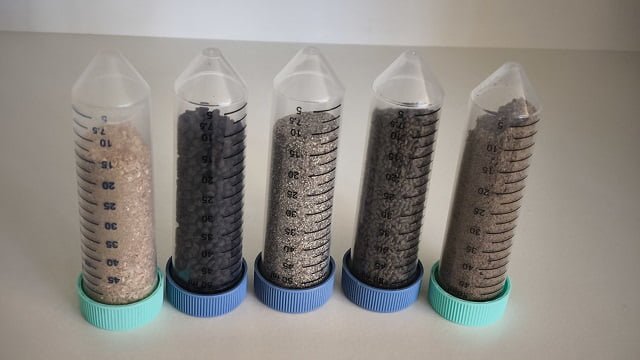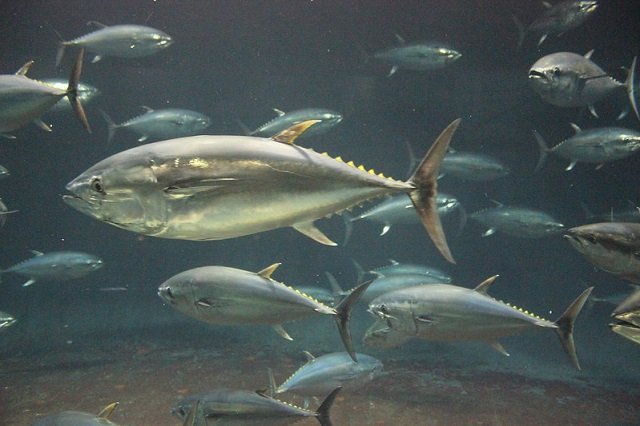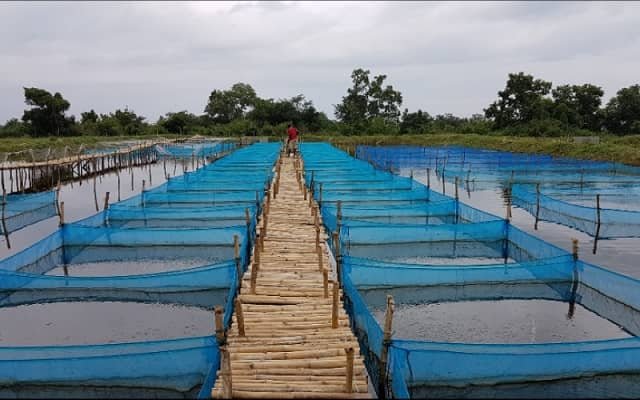
The global demand for protein-rich seafood is increasing, putting tremendous pressure on our already stressed wild fish populations. Traditional aquaculture heavily relies on fishmeal and fish oil, further intensifying overfishing. Fortunately, innovative solutions are emerging to create a sustainable aquaculture industry.
A study published in the journal Reviews in Aquaculture by scientists from the University of Thessaloniki (Greece), Nofima, University of Tasmania (Australia), and the Hellenic Centre for Marine Research (Greece), based on an extensive scientific review, explores the potential of new dietary ingredients as substitutes for fishmeal and fish oil in aquaculture feeds. The study’s authors delve into the impact of these alternatives on the growth and welfare of commercially important European fish species such as sea bass (Sparus aurata), gilthead seabream (Dicentrarchus labrax), Atlantic salmon (Salmo salar), and rainbow trout (Oncorhynchus mykiss).
Plant-based alternatives: a promising, albeit imperfect, solution
Soybean meal, rapeseed, and other plant proteins have been explored as substitutes. While they offer environmental benefits, they have drawbacks:
- Antinutritional factors (ANFs): Plant proteins often contain ANFs that hinder nutrient absorption.
- Lower protein content: Plant proteins tend to have lower protein levels compared to fishmeal, requiring higher inclusion rates to meet the needs of salmonids.
- Limited EPA and DHA: Plants lack the essential omega-3s needed by salmonids, necessitating supplementation with FO.
- Sustainability concerns: Increasing the production of plant-based feeds could lead to competition for land use and environmental impacts.
A spectrum of promising options
The review explores five key categories of alternative protein sources:
- Macroalgae (sea plants): These are promising due to their high protein content and ability to bioaccumulate essential nutrients.
- Krill (marine harvesting): While a marine resource itself, krill offers a more sustainable alternative to fishmeal because it comes from a lower trophic level.
- Insects (terrestrial): Insect protein offers a highly digestible, environmentally friendly option with complete protein profiles.
- Processed terrestrial animal by-products: Poultry processing by-products can be valuable protein sources but may require careful handling to ensure quality and safety.
- Single-cell ingredients (biotechnology): Microalgae and other single-cell organisms offer a rapidly growing and potentially nutrient-rich option, though some may require amino acid supplementation.
Performance and sustainability assessment
The review assesses the suitability of each alternative based on factors such as:
- Nutrient composition: Meeting the essential protein and lipid requirements of different fish species.
- Dietary inclusion levels: Determining optimal inclusion rates to maximize performance and minimize waste.
- Growth and performance: Evaluating the impact on the growth of fry and adult fish.
- Digestibility: Ensuring efficient nutrient absorption by the fish.
- Health benefits: Exploring potential positive effects on fish health and immunity.
Meta-analysis: A guide to nutritional balance
The review integrates a meta-analysis of the scientific literature to identify new ingredients that effectively meet the protein (amino acid) and lipid requirements of fish. It highlights the importance of careful reformulation strategies in aquaculture feeds. For example, while microalgae are promising, they may require additional sources of essential amino acids to achieve optimal nutrition.
Conclusion
The main conclusions of the study are:
- The aquaculture industry faces an urgent need for sustainable feed ingredients. As the sector expands, traditional sources like fishmeal (FM) and fish oil (FO) are becoming increasingly unsustainable. The search for alternatives must balance nutritional requirements with environmental concerns.
- New ingredients offer promising potential. Several novel options, including single-cell proteins (SCPs), insects, and biotechnology-derived products, demonstrate desirable nutritional profiles and can contribute to sustainability goals.
- However, challenges remain. Complete replacement of FM and FO is often impractical due to limitations in nutrient composition, digestibility, and potential negative impacts on fish health.
- A holistic approach is necessary. Evaluating new ingredients requires a comprehensive assessment of factors such as consistency, price, availability, nutritional qualities, and safety.
- Species-specific nutrition is crucial. Nutritional requirements vary between species, developmental stages, and environmental conditions. A one-size-fits-all approach is unlikely to be effective.
- Collaboration is key. The industry must focus on producing the optimal combination of ingredients, including balanced and sustainable organic feeds, while leveraging improved production technologies and strategies to reduce costs.
Based on the study’s findings, future research should explore:
- Product modification: Innovative techniques to enhance the nutritional value and digestibility of novel ingredients.
- Decarbonization: The role of aquaculture feeds in reducing greenhouse gas emissions.
- Integrative assessment: A more holistic approach to evaluating new ingredients, considering factors beyond nutritional composition.
In conclusion, the aquaculture industry must embrace a diverse and sustainable approach to feed ingredient development. By carefully considering novel options and leveraging the latest research, we can ensure the long-term health and sustainability of this vital sector.
Stay Always Informed
Join our communities to instantly receive the most important news, reports, and analysis from the aquaculture industry.
Contact
Nikolas Panteli
Laboratory of Animal Physiology, Department of Biology, Aristotle University of Thessaloniki
Thessaloniki, Greece
Email: nkpanteli@bio.auth.gr
Reference (open access)
Panteli, N., Kousoulaki, K., Antonopoulou, E., Carter, C. G., Nengas, I., Henry, M., Karapanagiotidis, I. T., & Mente, E. Which Novel Ingredient Should be Considered the “Holy Grail” for Sustainable Production of Finfish Aquafeeds? Reviews in Aquaculture. https://doi.org/10.1111/raq.12969
Editor at the digital magazine AquaHoy. He holds a degree in Aquaculture Biology from the National University of Santa (UNS) and a Master’s degree in Science and Innovation Management from the Polytechnic University of Valencia, with postgraduate diplomas in Business Innovation and Innovation Management. He possesses extensive experience in the aquaculture and fisheries sector, having led the Fisheries Innovation Unit of the National Program for Innovation in Fisheries and Aquaculture (PNIPA). He has served as a senior consultant in technology watch, an innovation project formulator and advisor, and a lecturer at UNS. He is a member of the Peruvian College of Biologists and was recognized by the World Aquaculture Society (WAS) in 2016 for his contribution to aquaculture.







